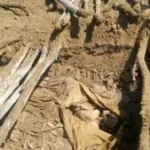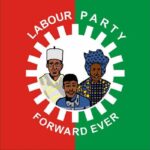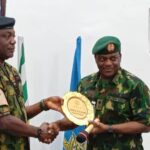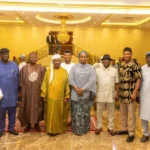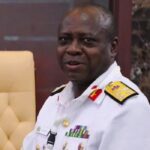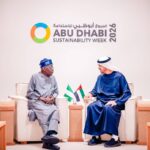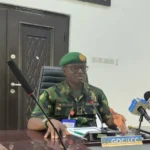When Lt John Glover of the British Royal Navy started the Nigerian Army in 1863, he likened it to a tree that should provide shade, protection and comfort to everyone.
To enable it do that job, he said that it must be properly nurtured, watered and cared for, as its mandate was enormous.
Today, 160 years after, the tree has even surpassed its mandate with its role expanding beyond safeguarding territorial integrity to providing internal security, handling peacekeeping missions abroad and providing critical infrastructure.
But, as the soldiers continue to discharge these roles, their welfare has remained a thorny issue.
From retired, serving and even late heroes, it has been a littany of complaints with some soldiers wishing they didn’t enlist, while some have reportedly opted out in anger.
The most common concerns border on welfare issues like promotion, allowances, medical facilities, insurance, care for the injured, the state of the barracks, etc.
This year’s Nigerian Army Day Celebration (NADCEL), held in Ibadan, provided a good opportunity for stakeholders to critically look at the concerns of the soldiers and the need to tackle them to motivate personnel for quality service.
The theme for the NADCEL was: “Sound Administration as Panacea for Effective Military Operations”.
First to fire the salvo was Maj.-Gen. Chris Musa, Chief of Defense Staff, who started by reminding Army Commanders that machines and guns do not fight.
“It is important for soldiers to feel cared for. It is important to always motivate soldiers to fight for the nation,” he declared.
Musa particularly emphasised the need to promote deserving soldiers.
“Let no one put in his best and promotion goes to someone else”.

Musa also emphasised the need to pay soldiers their dues.
“Some soldiers leave the Theatres because they have not been paid. Commanders must ensure that soldiers are paid. And promptly too.
“Nothing should occupy the minds of Commanders more than the personnel. Nothing should ever be more crucial than the personnel.
“Another concern is how we treat our injured. Do we treat them well or abandon them? If we abandon them, the affected soldier and his colleagues will feel very bad. That could affect morale”.
He told Commanders to always be wary of the fact that the way they treat personnel when in service would determine the way they would treat them when they bowed out.
Musa also spoke on the accommodation provided for soldiers in the barracks.
“We must ensure befitting abodes for our personnel.
“One room is not good for a soldier. You cannot be in one room with your wife and children. That will not be fair.
“Commanders must do everything to ensure the comfort of those in their commands. What you cannot handle, pass on to superior authorities,” he said.
Musa also emphasised the need to rotate personnel on special duty, and regretted that some people are kept there for seven to eight years.
“Keeping a personnel for seven to eight years is not good for morale. No one should stay in the Theatre for more than two years.
“In some instances, some people are taken to the war theatre four or five times while others hadn’t gone there even once. That is not proper.”
While advocating the need to care for old soldiers and families of late heroes, Musa stressed the need to comprehensively insure every Army personnel.
Musa also emphasised the place of quality feeding for personnel in the Theatre.

He challenged the current Army leadership to take up the challenge of building a strong force that would make the needed difference.
“This is our time. We must make it count. We have to be role models,” he declared.
Maj.-Gen Taoreed Lagbaja, Chief of Army Staff, also emphasised the need to pay attention to soldiers’ welfare to motivate them to serve their nation.
“I am always conscious of the welfare of my troops. As a GOC, welfare topped my concerns.
“I am always around my soldiers and would eat with them, go to assignments with them and ride my bicycle around the barracks to see things for my self.”
Lagbaja said he was prompt at approving funds for medicare and ensured his men were kept in decent places while on local or international assignments.
Lagbaja said he met a backlog of unpaid insurance moies and had approved immediate payments.
Retired Maj.-Gen. Adeniyi Oyebade, a guest lecturer at the NADCEL, equally emphasised the need for the Nigerian Army to look critically into the issue of troops’ rotation and regular payment of allowances of troops in the war front.
The topic of the lecture was “Optimising Nigerian Army Administration for Successful Countering of Insurgency Operations: Strategic Options.”
He also urged the Nigerian Army to provide medical attention to wounded troops for optimal performance in insurgency operations.

Oyebade, who retired as the 28th Commandant of the Nigerian Defence Academy (NDA), said that the Nigerian Army had the responsibility to ensure its troops were provided with necessary administration and logistics, to effectively deliver and tackle counter insurgency and other operations.
“Over the years, effective administration of troops remains a reccurring challenge; the dynamic engagements of the Nigerian Army in different internal security and counter insurgency operations have serious administrative and logistics challenges.
“This is evident in Nigerian Army troops’ complaints of poor feeding, delay in payment of allowances, irregular issuing of protective kits, among others. All these incapacitate the willingness of the troops to fight effectively,” he said.
Oyebade urged the Nigerian Army to critically assess the issue of special promotion and promote those who actually deserved to be promoted.
According to him, promoting wrong persons has an effect on the morale of the troops to fight and put in their best.
He said the Nigerian Army should take care of the families of deceased officers and ensure they got their benefits as and when due, to boost the morale of those still alive.
He also advised the Nigerian Army to invest in latest technology that would help in their operations, and be abreast of what the insurgents were doing in order to be ahead of them.
Oyebade further urged the Nigerian Army to look inward by partnering relevant industries to produce weapons locally rather than depending on foreign nations.

But, while the Army leadership strives toward providing what is required for optimum performance, analysts have continued to wonder if the defence sector is well funded.
Mr Patrick Agbambu, Chief Executive Officer, Security Watch Africa Initiatives, believes that the military is poorly funded.
He said: “For Nigeria that is practically at war, the defence budget is quite abysmal. It is very low.
“Take South Africa, for instance. It is not at war. There is no terrorism. The soldiers there just do daily exercises. But our defence budget is not up to 10 per cent of its allocations to that sector.
“Even Egypt. Our defence budget is far below its own. We have not had much of restocking of arsenals.
“The immediate past administration tried a lot, but there is still a lot to be done.
“Another problem is that, appropriation is one thing while disbursement is another. Sometimes, the military may not get up to 40 per cent of the monies approved”.
Agbambu also spoke on possible misppropriation of monies received.
“I don’t think it is easy for money to be misused.
“Some misuse could crop in, but I am aware that the past administration placed some measures in the financial control system where allowances are paid straight into the accounts of beneficiaries.
“With such checks in place, it is difficult for anything funny to be done,” he said.
Analysts, while agreeing with Agbambu, however, note that the defence budget has increased by 134.8 per cent in five years.
According to details on the official budget documents of the country, the allocation to the defence sector in 2019 stood at N589.955 billion.
It rose to N1.383 trillion in 2023 which signified an increase of 134.8 per cent.
Analyst say the improvements in the budgetary allocations signify government’s readiness to water the tree planted by Glover in 1863, to further greatness.
They unanimously agree that it should never be allowed to wither so as not to lose vitality, force or freshness as no nation can afford that. (NANFeatures)
**If used please credit the writer and News Agency of Nigeria**

